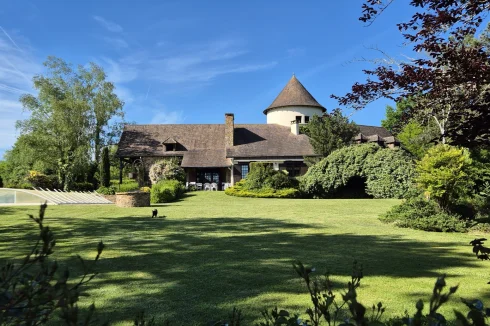Social Security Rates on Furnished Lettings
Friday 03 March 2017
The success of on-line platforms such as Airbnb has obliged the government to revise social security regulations on rental income from furnished lettings.
On-line platforms such as Airbnb and Uber are becoming a huge headache for the French government, with uproar from established operators about 'unfair competition' and concern amongst local councils about the loss of traditional rental accommodation.
In response to pressure from lobby groups, over the past couple of years the regulatory framework has been strengthened.
Most substantially affected have been landlords of furnished accommodation in the major conurbations who are now subject to stronger planning controls, declaration obligations and tourist tax collection procedures.
Since 1st January 2017, there is also a revised social security regime, with the rules applying wherever the property may be located and however the income may be generated. Those who let via an SCI subject to company taxation are not affected by these changes.
The new framework has yet to be fully sculptured out, so the following observations are given on a provisional basis.
Income Less Than €23,000pa
If your income from furnished lettings is less than €23,000 a year (or €5,100 for a chambre d'hôte) there is no change; you simply remain liable for social charges at the rate of 15.5% on net taxable income, with a fixed tax allowance of 50% or 71% as appropriate, under the tax regime of 'Micro-BIC'. You can, however, elect to be taxed under the regime réel, effectively your actual profits.
Strictly speaking, for those let rooms in a chambre d'hôte there is a requirement to register the activity as a business if it is carried out on a regular basis, irrespective of income. This includes those who may only do it on a seasonal basis. Only if the activity is ancillary to an agricultural business would it escape this requirement.
Those who may have in the past have let furnished property on an occasional basis, with the income taxed as revenus fonciers, will now be taxed on the same basis as above, increasing the tax allowance to 50% from 30% under the previous regime.
There also continues to be complete exemption from income tax and social charges for income from providing lodgings accommodation to person(s) to occupy as their main home at a 'reasonable' rent.
Income Greater Than €23,000pa
Where your income from the short-term letting of furnished accommodation is greater than €23,000 a year (or greater than €5,100 for a chambre d'hôte), you are now required to register as a business.
Many landlords with this level of rental income are already likely to be operating as a registered business.
However, it does seem from the legislation that this rule does not apply if the property is let as the principal home of the tenant on a long-term basis, a minimum of three months in duration. In such circumstances, the previous rules would appear to remain in place, but clarification is awaited on this point.
Where the change does apply, the rate of the social security contributions and the amount of the income tax allowance will depend on the business status and nature of the accommodation. We can distinguish three different tax groups.
i. Micro-Entrepreneur
In relation to those who register as a micro-entrepreneur, you will pay social security contributions on your gross rental income. The rate at which you pay depends on the type of accommodation:
- Unclassed Furnished Letting - 22.7%
- Meublé de Tourisme 12.8%
- Meublé de Tourisme Classée - 6%
- Chambre d'hôte - 13.1%
Contrary to the social security contributions, a fixed cost allowance exists before you become liable for income tax, as follows:
- Unclassed Furnished letting - 50%
- Meublé de tourisme classée - 71%
- Chambre d'hôte - 71%
Clearly, in such circumstances it pays owners of rural gites to obtain classification of their property as a meublé de tourisme classée in order to pay lower social security contributions and income tax. We say more about this process in our guide to letting property in France, on the link below.
ii. Régime des travailleurs indépendants (RSI)
As an alternative to becoming a micro-entrepreneur, those who are required to register as a business can do so with the Régime Social des Indépendants (RSI) using the regime réel, under which social security contributions are payable at the rate of around 45% on net rental income, ie after deduction of eligible costs.
Where your annual turnover from furnished lettings exceeds a certain threshold you are required to register with the RSI and adopt the regime réel. The thresholds vary by type of accommodation, as follows:
- Furnished letting - €33,200
- Meublé de tourisme classée - €82,800
- Chambre d'hôte - €82,800
iii. Salaried Employee
If you are already registered with the social security system as a salaried employee, you have the choice of continuing to operate without business registration and simply pay social security contributions through the main general regime. In such circumstances you are granted a tax allowance of 60% (or 87% if a meublé de tourisme classée) against social charges and income tax on such rental income.
Next Article: Local Rates Allowances
Thank you for showing an interest in our News section.
Our News section is no longer being published although our catalogue of articles remains in place.
If you found our News useful, please have a look at France Insider, our subscription based News service with in-depth analysis, or our authoritative Guides to France.
If you require advice and assistance with the purchase of French property and moving to France, then take a look at the France Insider Property Clinic.





